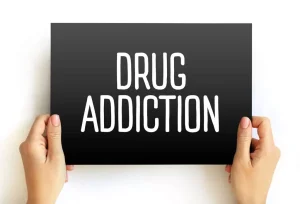
For those already having trouble sleeping, alcohol can exacerbate their problem. People with insomnia have an increased risk of developing alcohol use disorder, potentially because many individuals turn to alcohol as a Sober living house sleep aid. “Data collected over the last several decades support a negative health impact of too much sleep,” says O’Malley. “Both too little, and too much, is cause for concern.” Most importantly, an increased need for sleep should be evaluated for underlying medical or sleep disorder causes, he adds.

REM Sleep
It’s because I know what alcohol can do to sleep and healthy circadian rhythms. Unfortunately, overall sleep quality is impaired, some functions of sleep are prevented, and it can cause insomnia later in the night. Unfortunately for anyone using it to fall asleep, that’s only part of the effects of alcohol. As the body processes alcohol, depending on the volume consumed and the individual, it can negatively impact the beginning phases of sleep or the entire night. If you are one of the nearly two thirds of Americans who drink alcohol, chances are, you’ve had a drink in the hours before bedtime. Maybe you enjoy a glass of beer or wine after dinner, or your weekends include drinking with friends at bars or social events.
The Worst Beverages to Drink Before Bed

Alcohol has a direct effect on circadian rhythms, diminishing the ability of the master biological clock to respond to the light cues https://ecosoberhouse.com/ that keep it in sync. Those effects of alcohol on the biological clock appear to persist even without additional drinking, according to research. Alcohol may appear to be a sleep aid, as it can induce a sedative-like effect. However, disrupted sleep patterns often follow this initial drowsiness, resulting in poor sleep quality.
Health Categories to Explore
- During the second half of the night, sleep becomes more actively disrupted.
- A comfortable mattress and pillows can also encourage better, more relaxing sleep without the need for alcohol to help you wind down.
Adequate sleep helps improve concentration, memory, and alcohol for sleep decision-making skills. Alcohol and lack of sleep can impair these cognitive functions, leading to difficulties in everyday tasks. While alcohol is often mistakenly used in an attempt to relax or unwind, its impact on the quality of sleep can be quite negative. This can lead to frequent wake-ups, causing fragmented sleep.“Alcohol is a diuretic, causing frequent urination and dehydration, which can lead to fragmented sleep and early morning awakenings,” explains Allder.
Ways Alcohol Disrupts Your Night
- The higher volume of light sleep can result in more sleep disturbances and less total sleep overall (Pietilä, et al., 2018).
- It interferes with the body’s natural timekeeping mechanisms by decreasing sensitivity to important environmental cues like daylight and darkness.
- Alcohol can contribute to dehydration, which can further disrupt sleep quality.
Alcohol may be consumed in beer, wine, and hard liquors like vodka, rum, gin, and whiskey. It is more often consumed at night, also called a nightcap, and may negatively affect your sleep. While alcohol can make you feel tired at first, it can also disturb your sleep as it wears off. Ultimately it can make some people more vulnerable to sleep apnea or exacerbate the symptoms for those who already have it. If you fancy a glass of wine with dinner or a nightcap before bed, you might want to cap the Chiante and put the Negroni down — research shows that even low alcohol intake can stymie your sleep.
- People who regularly drink alcohol are 25% more likely to have obstructive sleep apnea, although the connection may be partly due to other shared risk factors such as obesity.
- “Prioritise a consistent sleep routine by going to bed and waking up at the same time each day, and engage in light-exposure therapy during the daylight hours to help regulate the circadian rhythm after disrupted sleep,” recommends Sharma.
- As a passionate advocate for science-based content, she loves writing captivating material that supports scientific research and education.
- Because alcohol is a sedative, similar to any sleeping medication, sleeping pills and alcohol is highly dangerous.

